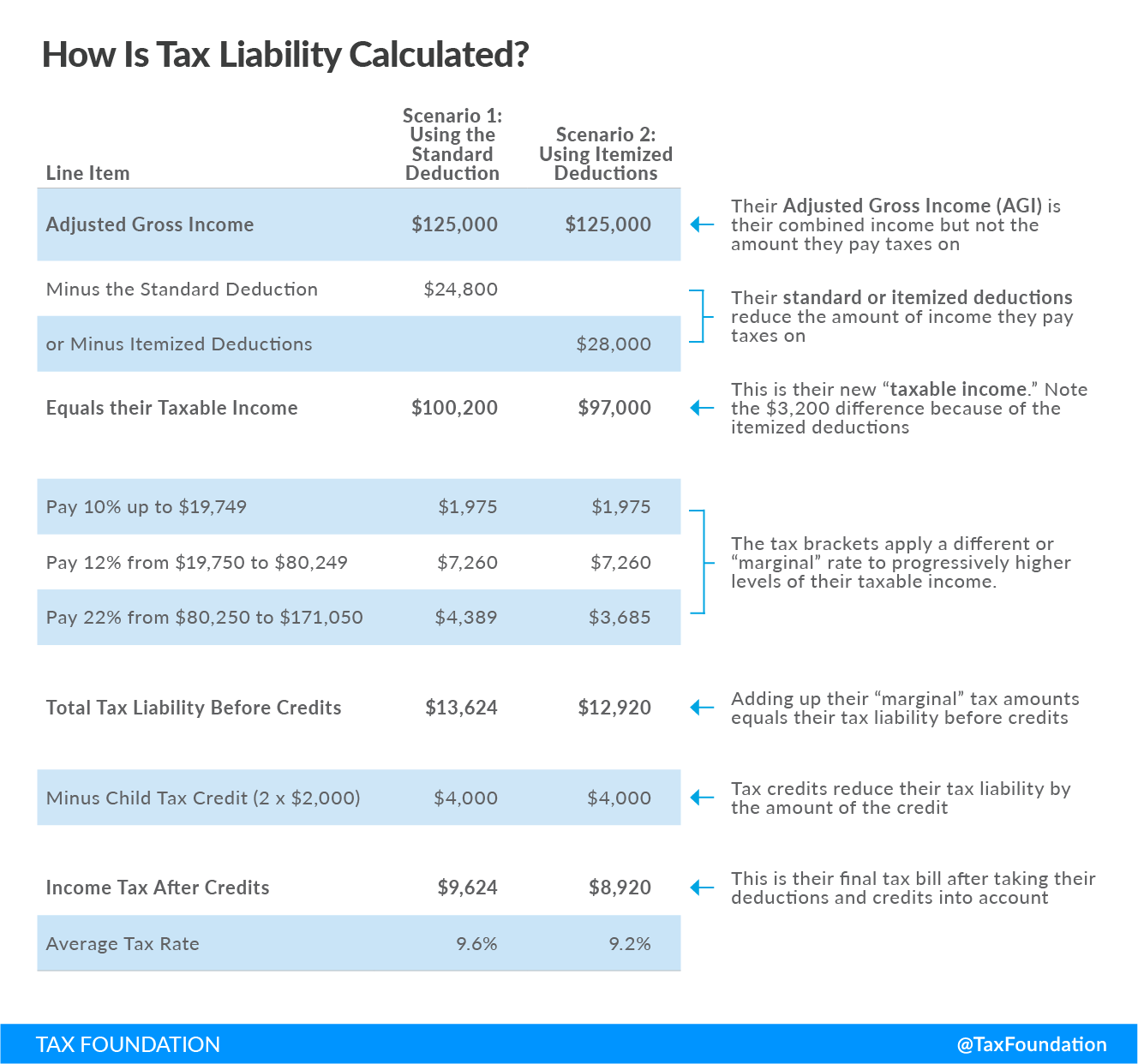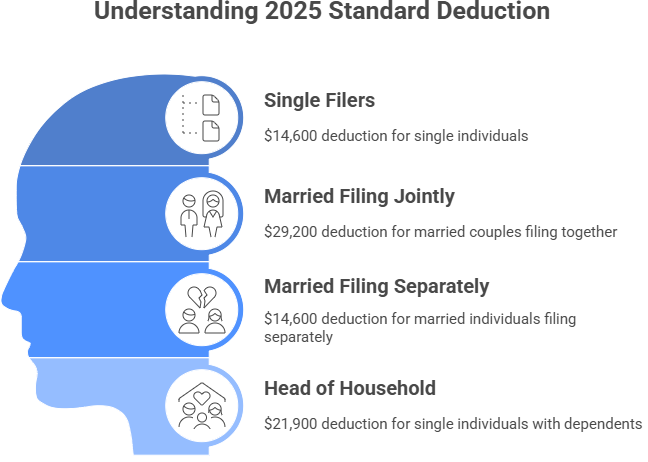A comparison of itemized deductions vs. the FEIE Standard Deduction for expats
Wiki Article
Comprehending the Foreign Earned Income Exclusion and Its Effect On Your Basic Deduction
The Foreign Earned Earnings Exclusion (FEIE) uses substantial benefits for expatriates, enabling them to exclude a portion of their foreign-earned income from U.S. tax. Asserting the FEIE can make complex one's tax obligation scenario, especially regarding the standard reduction. Understanding this interaction is essential for individuals living abroad. As expatriates navigate these intricacies, they should consider just how their options impact their total tax obligation. What strategies can they utilize to maximize their economic end results?What Is the Foreign Earned Income Exclusion (FEIE)?
The Foreign Earned Income Exemption (FEIE) offers as a crucial tax advantage for united state citizens and resident aliens working abroad. This stipulation permits eligible people to omit a substantial portion of their foreign-earned revenue from U.S. tax, properly reducing their total tax concern. The FEIE aims to minimize the monetary pressure on expatriates and encourages Americans to go after employment possibility in international markets. The exclusion uses to wages, wages, and expert costs gained while living in a foreign country. The maximum exclusion amount is changed annually for inflation, making sure that it stays pertinent to existing financial conditions. By utilizing the FEIE, expatriates can maintain more of their earnings, cultivating financial stability while living overseas. Overall, the FEIE plays an important function in forming the monetary landscape for Americans abroad, promoting a smoother shift to worldwide work settings and advertising economic involvement on a global scale.Eligibility Requirements for the FEIE
Qualification for the Foreign Earned Revenue Exemption (FEIE) rests upon meeting details standards set by the Irs (INTERNAL REVENUE SERVICE) Mostly, individuals should be united state citizens or resident aliens that make income while staying in a foreign country. To qualify, they have to satisfy one of two key examinations: the Physical Presence Examination or the Authentic Residence Test.The Physical Presence Test needs individuals to be physically present in a foreign country for at the very least 330 complete days within a 12-month period - FEIE Standard Deduction. Alternatively, the Authentic Residence Test requires that people establish residency in an international nation for an undisturbed duration that consists of an entire tax obligation year
Additionally, the income must be originated from individual solutions performed in the foreign country. Satisfying these requirements allows taxpayers to leave out a considerable portion of their foreign-earned earnings from U.S. taxation, therefore lowering their overall tax obligation.
How to Assert the FEIE

To start the procedure, individuals ought to gather files that confirm their foreign incomes, such as pay stubs, tax obligation returns from foreign countries, and any pertinent employment agreement. It is important to assure all revenue claimed under the FEIE is made from foreign resources and fulfills the needed thresholds.
Additionally, taxpayers should take into consideration submitting target dates and any type of feasible extensions. Claiming the FEIE appropriately not only assists in minimizing tax liability however likewise ensures conformity with IRS policies. Proper paperwork and adherence to standards are essential for an effective claim of the Foreign Earned Revenue Exemption.
The Communication In Between FEIE and Standard Deduction
The interaction between the Foreign Earned Revenue Exclusion (FEIE) and the conventional reduction is a crucial facet of tax planning for migrants. Understanding the standard concepts of FEIE, along with the constraints of the standard reduction, can considerably affect tax obligation declaring methods. This area will explore these components and their implications for taxpayers living abroad.FEIE Basics Explained
While several expatriates look for to lower their tax burden, recognizing the communication in between the Foreign Earned Income Exemption (FEIE) and the standard deduction is necessary. The FEIE permits united state people and resident aliens living abroad to leave out a particular amount of foreign made earnings from U.S. taxation. This exemption can substantially lower taxed earnings, potentially affecting eligibility for various other reductions, such as the basic reduction. Incredibly, people that claim the FEIE can not additionally take the conventional reduction against the left out income. Because of this, expatriates should meticulously review their complete earnings and reductions to enhance their tax obligation scenario. Recognition of these interactions can lead to even more enlightened financial choices and better tax strategies for expatriates guiding through their unique conditions.Requirement Reduction Limitations
Understanding the limitations of the conventional deduction in regard to the Foreign Earned Revenue Exclusion (FEIE) is crucial for migrants navigating their tax obligation responsibilities. While the FEIE enables certifying individuals to leave out a particular quantity of foreign-earned earnings from U.S. taxes, it can influence the common deduction they are eligible to insurance claim. Specifically, taxpayers that declare the FEIE can not also claim the basic deduction on that omitted earnings. Additionally, if a migrant's overall revenue falls below the conventional reduction limit, they might not profit from it at all. This interaction necessitates careful planning to enhance tax obligation advantages, as underutilizing the conventional reduction can lead to greater gross income and increased tax liability. Understanding these limitations is essential for reliable tax obligation approach.Tax Declaring Ramifications
Navigating the tax declaring ramifications of the Foreign Earned Earnings Exemption (FEIE) needs cautious consideration of how it interacts with the standard deduction. Taxpayers utilizing the FEIE can leave browse around this site out a considerable section of their foreign-earned earnings, but this exemption influences their eligibility for the standard deduction. Especially, if a specific insurance claims the FEIE, they can not likewise declare the common deduction for that earnings. This can result in a lower overall tax obligation but might make complex the filing process. Additionally, taxpayers have to ensure conformity with IRS requirements when submitting Form 2555 for the FEIE. Recognizing these interactions is crucial for enhancing tax obligation benefits while preventing prospective challenges in the filing process. Careful planning can take full advantage of benefits and lessen obligations.Potential Tax Effects of Making Use Of the FEIE
The Foreign Earned Income Exemption (FEIE) offers significant tax benefits for united state people functioning abroad, but it likewise includes possible ramifications that call for careful factor to consider. One major effect is the impact on qualification for certain tax credit reports and reductions. By electing to utilize the FEIE, taxpayers might unintentionally reduce their adjusted gross earnings, which can restrict accessibility to credit histories like the Earned Income Tax Credit or lower the amount of common reduction offered.
In addition, individuals who use the FEIE might encounter issues when returning to the U.S. tax system, particularly worrying the taxation of future income. The exclusion applies only to made revenue, indicating other revenue types, such as rewards or rate of interest, stay taxed. This difference requires meticulous record-keeping to assure conformity. The FEIE might affect state tax obligation obligations, as some states do not identify the exclusion and might exhaust all income gained by their locals, regardless of where it is earned.
Tips for Optimizing Your Tax Obligation Advantages While Abroad
While working abroad can be enhancing, it also presents unique possibilities to optimize tax obligation advantages. To make the most of these benefits, individuals ought to first determine their eligibility for the Foreign Earned Income Exemption (FEIE) and think about the physical visibility examination or the authentic house examination. Keeping detailed records of all income earned and costs incurred while abroad is crucial. This paperwork supports insurance claims for deductions and credit scores.In addition, recognizing the tax obligation treaties between the United States and the host nation can aid avoid double taxes. Individuals should additionally explore contributions to tax-advantaged accounts, such as Individual retirement accounts, which might offer additional reductions.

Finally, seeking advice from a tax professional focusing on expatriate tax obligation law can supply tailored methods and guarantee conformity with both united state and international tax responsibilities. By taking these actions, migrants can efficiently enhance their economic situation while living abroad.
Regularly Asked Questions
Can I Make Use Of FEIE if I Help an International Government?
Yes, an individual can use the Foreign Earned Earnings Exclusion (FEIE) while benefiting a foreign federal government, supplied they meet the requisite conditions laid out by the internal revenue service, consisting of the physical visibility or authentic house examinations.
Does FEIE Put On Self-Employment Earnings?
The Foreign Earned Earnings Exemption (FEIE) does relate to self-employment income, provided the individual fulfills the required demands. Qualified independent people can exclude qualifying earnings earned while living in a foreign nation from tax.What if My Foreign Earnings Goes Beyond the FEIE Limit?
If foreign income surpasses the FEIE limit, the excess quantity may undergo united state taxation. Taxpayers must report and pay tax obligations on the revenue above the exemption threshold while still profiting from the exemption.Can I Assert the FEIE and Detail Reductions?
Yes, people can assert the Foreign Earned Earnings Exclusion (FEIE) while likewise making a list of reductions. Nevertheless, they this article should realize that claiming the FEIE may influence the accessibility of specific itemized deductions on their tax return.Exactly How Does FEIE Affect My State Tax Obligation Obligations?
The Foreign Earned Income Exemption can lower state tax obligation obligations, as many states follow government standards. However, private state rules differ, so it's essential to get in touch with state tax regulations for details effects on tax obligation duties.The Foreign Earned Revenue Exemption (FEIE) uses significant advantages for expatriates, allowing them to leave out a part of their foreign-earned income from U.S. taxes. While many migrants seek to reduce their tax worry, recognizing the interaction in between the Foreign Earned Earnings Exclusion (FEIE) and the standard deduction is necessary. Understanding the limitations of the common reduction in connection to the Foreign Earned Earnings Exclusion (FEIE) is necessary for migrants navigating their tax obligations. The exemption applies only to gained income, implying other earnings kinds, such as returns or passion, continue to be taxed. The Foreign Earned Income Exclusion (FEIE) does use to self-employment revenue, provided the more info here individual meets the required needs.
Report this wiki page